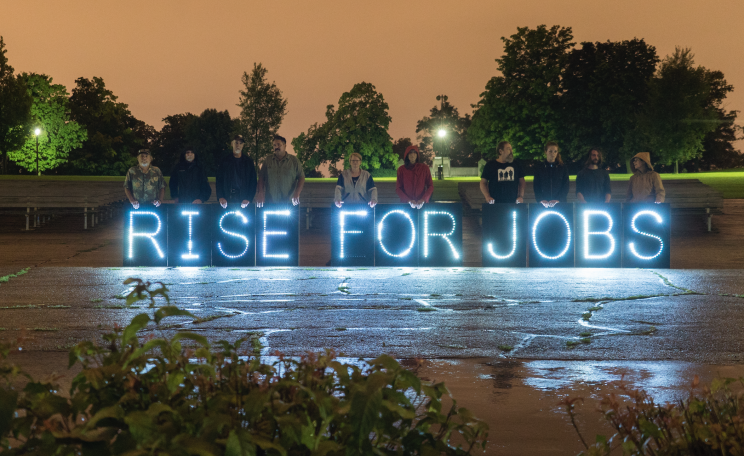Free trade gave us the world we have today, a world wracked by poverty and inequality, facing a climate emergency and a nature crisis, a model that Covid-19 has helped expose as profoundly insecure and unstable.
There is a tradition in the House of Lords that maiden speeches are received only with approval. When, however, Baron Grimstone of Boscobel made his maiden speech earlier this week, it was for the government, as a minister, presenting the Trade Bill (again) to the House.
I felt it was time to break that tradition because what he said was profoundly at odds with Green Party philosophy. In introductory remarks, that he no doubt thought were uncontroversial, the minister said: “Globalisation, trade and investment are the best route to prosperity and peace”.
These are sentiments that attracted wide support from all sides of the House. For the Liberal Democrats, Baroness Kramer said that “free, open and fair trade is a bedrock of our political movement”.
Exploitation
These sentiments that attracted wide support, reflecting the nineteenth-century and earlier origins of the political philosophies that dominate in the House. Those are the philosophies that gave us the world we have today, a world wracked by poverty and inequality, facing a climate emergency and a nature crisis, a model that Covid-19 has helped expose as profoundly insecure and unstable.
Pursuing our current economic model – based on growth in trade, specialisation of production, the exploitation of vulnerable workers and nations – has given us a world in which one in nine people regularly go to bed hungry while we face a climate emergency and nature crisis on a planet that has been treated as a mine and a dumping ground.
Independent peer and food campaigner Baroness Boycott highlighted one of the longterm issues that the Bill should address: we have been treating the lungs of the planet, its forests, as a free space for destruction. Many peers, I’m pleased to say, referred to the climate emergency, and the threat that trade represents to it.
That destruction has been to the benefit of a few, not the majority of the people on the planet. In this week's other maiden speech the Bishop of Blackburn, who speaking for the circumstances of his diocese, said that he would be working to ensure the House “heed the needs of the poorest and most vulnerable communities”, noting how many of these were in the North of England.
Free trade gave us the world we have today, a world wracked by poverty and inequality, facing a climate emergency and a nature crisis, a model that Covid-19 has helped expose as profoundly insecure and unstable.
If we look back over recent centuries, this was a region that did enjoy a period of relative prosperity built on trade (and also on the back of children labourers and exploited children), but that was at the cost of impoverishment of Britain’s colonial possessions. As the Earl of Devon said, the need for the Black Lives Matter movement today can be directly traced back to the trade of this era.
Growth
There’s a chilling reminder of this period in the astonishing appointment of former Prime Minister of Australia Tony Abbott – internationally famous for misogyny and misleading families of victims of an air crash. He’s now an adviser to the Board of Trade or, to get into the full formalities, The Lords of the Committee of the Privy Council appointed for the consideration of all matters relating to Trade and Foreign Plantations. Heading not so much into the 20th-century there as the 18th.
But let’s look at positive possibilities. What the Green Party believes is that we need strong local economies in all parts of the world, built on the foundation of local, independent businesses and cooperatives, with money circulating around those economies, doing its work of meeting people’s needs.
That’s rather than the place of money in our trade-focused world, which sees money concentrated uselessly in tax havens and the financialisation of more and more areas of life, a threat to the security of us all and the stability of our economies, as the increasingly regular arrival of financial crises has demonstrated all too clearly.
That’s not to say that the Green Party advocates autarky, or anything like it. Different regions can have specialities, luxuries, particular skills or specialisations, access to rare or limited materials – that they can – if fairly renumerated and covered by appropriate environmental and social standards, trade for other places’ specialities.
But if most of the food on the plate, the items we need for everyday life and necessity, come from relatively nearby, not only are we avoiding the environmental destruction of mass transit of goods – not just on the climate, but in air pollution, noise and community disruption – but we’re also providing a more resilient, secure system, even more essential now in the world of shocks, like Covid-19, that the trade-based model of endless growth has helped to create.
This Author
Natalie Bennett is a Green Party peer.







